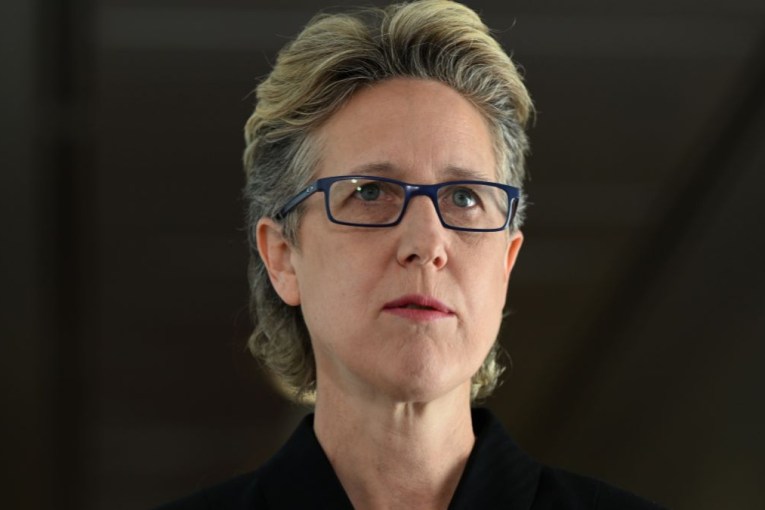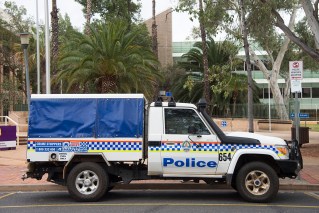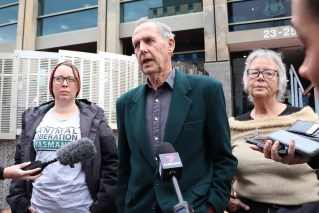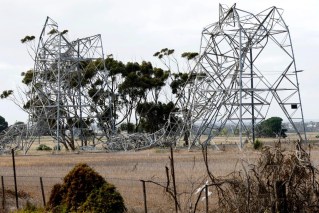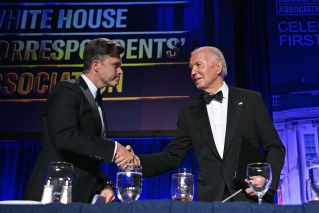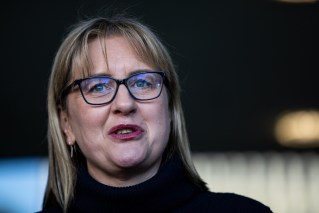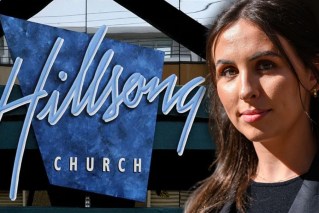Court blocks second pandemic rally as NSW police threaten arrest and fines
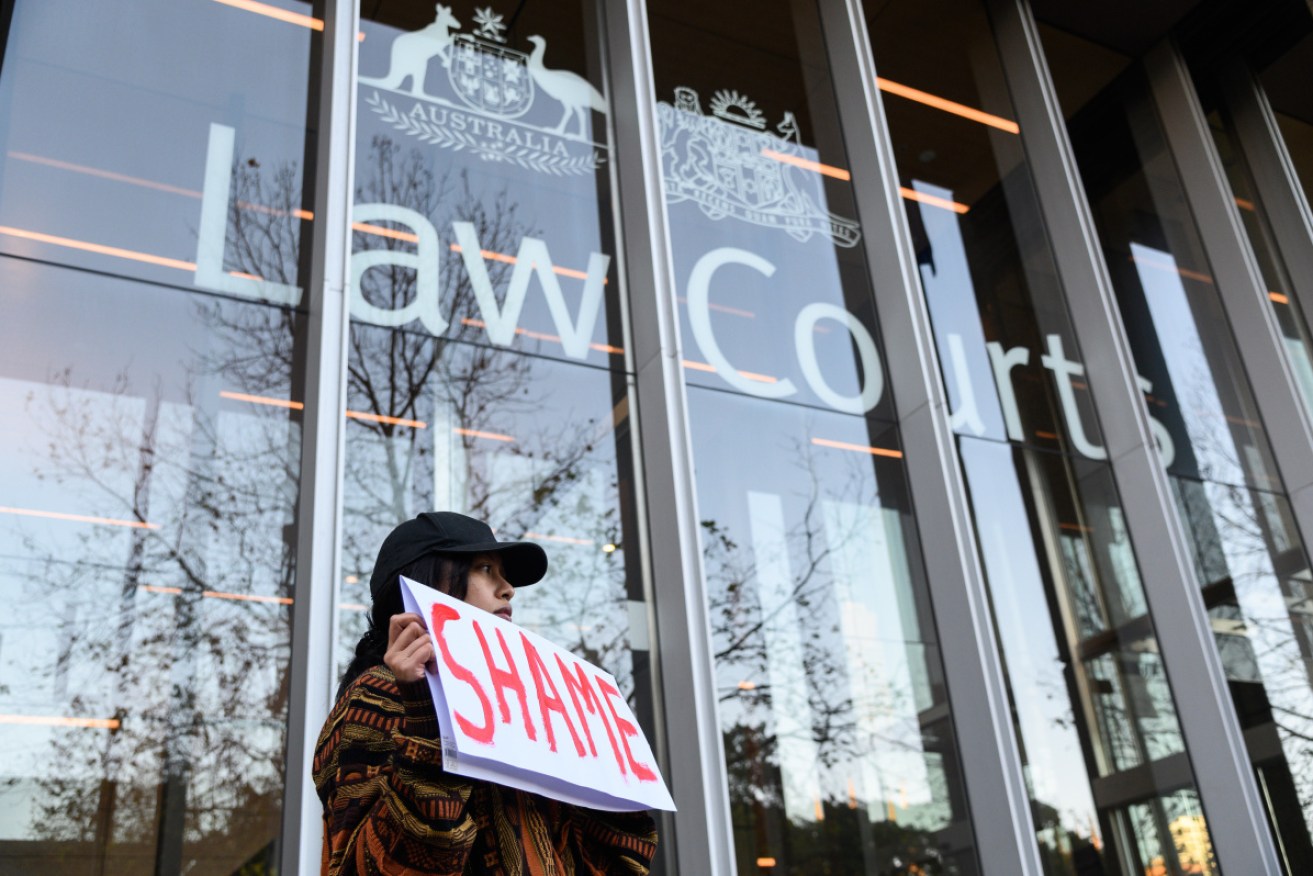
The Supreme Court in Sydney ruled to prohibit Saturday's rally, in contrast to a week earlier. Photo: AAP
NSW police are threatening to deploy “significant resources” against fresh protests as organisers of a second rally vow to push on, despite a court ruling.
The Supreme Court of NSW on Thursday night blocked the Refugee Action Coalition holding a demonstration during the pandemic on public health grounds.
However, the group said it would press ahead with Saturday’s protest at Sydney’s Town Hall despite the threat of arrest and $1000 fines.
It comes as Victoria’s virus investigators trace contacts of an infected man who developed symptoms the day after attending Melbourne’s crowded Black Lives Matter protest last weekend.
Victorian chief health officer Brett Sutton said it was unlikely the man in his 30s contracted COVID-19 at the event, where he wore a mask. But he could have been infectious.
It could take another week to determine whether the Melbourne protest, attended by thousands, has contributed to local transmission amid fears of a second wave of COVID-19.

Protestors in Melbourne raise a fist ‘in solidarity with black people all over the world’.
The protester’s positive result was one of eight new cases in Victoria recorded on Thursday. Australia’s only other infection was in Queensland.
NSW has not confirmed a community-derived COVID-19 case in two weeks and there were no new cases in the state on Thursday.
- Infection update: Check the latest COVID-19 statistics
Organisers of Sydney’s march, planned for Saturday afternoon, have been accused of playing “Russian roulette” as they prepare to breach gathering limits.
Co-organiser James Supple said he would be pleased if 200 people turned up and advised demonstrators to observe social distancing measures and health guidelines.
“We’ll still be holding an event this Saturday, urging people to participate,” Mr Supple said outside court.
“As the court said, it doesn’t actually make it illegal to come to a protest, it just gives the police more powers.”
NSW Police Assistant Commissioner Mick Willing said he supported the exercise of free speech, but the country was in the midst of an “unprecedented pandemic”.
“I want to be clear about this – if people choose to break the law and attend this protest, police will not hesitate to take the appropriate action against them,” he said.
Earlier, Prime Minister Scott Morrison said protesters were “pushing a whole lot of other barrows now” and putting others’ lives and livelihoods at risk.”
Mr Morrison wants authorities to arrest and charge people who attend future protests.
“They have put the whole track back to recovery at risk and certainly any further action on this front would be absolutely unacceptable,” he said on Thursday.
In court, Lachlan Gyles SC, acting for NSW Police, had argued that protesters were playing “Russian roulette” given the current limits on gatherings of no more than 10 people.
Police Minister David Elliott welcomed the Supreme Court’s decision, warning: “If you disregard the move-on directions of police officers, you can expect to be arrested.”
Borders on agenda

A Queensland police officer at a checkpoint at Coolangatta, on the NSW border. Photo: AAP
The federal Treasurer has warned closed borders are costing jobs, ahead of Friday’s National Cabinet meeting.
Border closures will be a key issue amid ongoing tension between the federal Coalition and state governments with hardline approaches.
Mr Morrison will also highlight the need to slash red tape on road and rail projects – and issue the federal government considers is delaying infrastructure building.
Queensland’s Labor government continues to cop the brunt of federal pressure about borders. But WA, SA, Tasmania and the NT also have closed borders.
The NT government has indicated it is close to reopening its borders to domestic tourist.
South Australia is also about to outline some relaxation of border measures.
Treasurer Josh Frydenberg issued a blunt plea to states such as Queensland that are holding firm.
“Closed borders cost jobs. There is no clear medical reason as to why those domestic borders should be closed,” he said.
Also on the National Cabinet agenda on Friday will be rules around indoor gatherings and how airlines operate.
Meanwhile, lawyers challenging the Queensland government’s constitutional right to keep the state’s borders closed will return to court on Friday.
Billionaire businessman Clive Palmer and a group of tourism operators named Travel Essence launched separate proceedings in High Court after the borders were closed in March.
India a ‘ticking time bomb’

The coronavirus is spreading through India but it’s feared true infection rates could be higher. Photo: Getty
India has reported a record of nearly 10,000 new coronavirus cases, with health services in the worst-hit cities of Mumbai, New Delhi and Chennai swamped by rising infections.
India’s tally has reached 286,579 confirmed cases, the fifth highest in the world. It has had 8102 deaths, including 357 in the past 24 hours.
The spike came as the government moved ahead with reopening restaurants, shopping centres and places of worship across the country after a lockdown of more than two months. Subways, hotels and schools remain closed.
Actual infection numbers are thought to be higher than recorded because of limited testing.
The health ministry said it was was testing more than 145,000 people a day. India’s total number of tests topped five million on Wednesday.
The ministry said the total number of recovered patients had exceeded the active cases for the first time.
“We are sitting on a ticking time bomb,” said Dr Harjit Singh Bhatti, president of the Progressive Medicos and Scientists Forum.
“Unless and until the government increases its spending on healthcare, things won’t change. A lot of people will die.”
-with agencies
